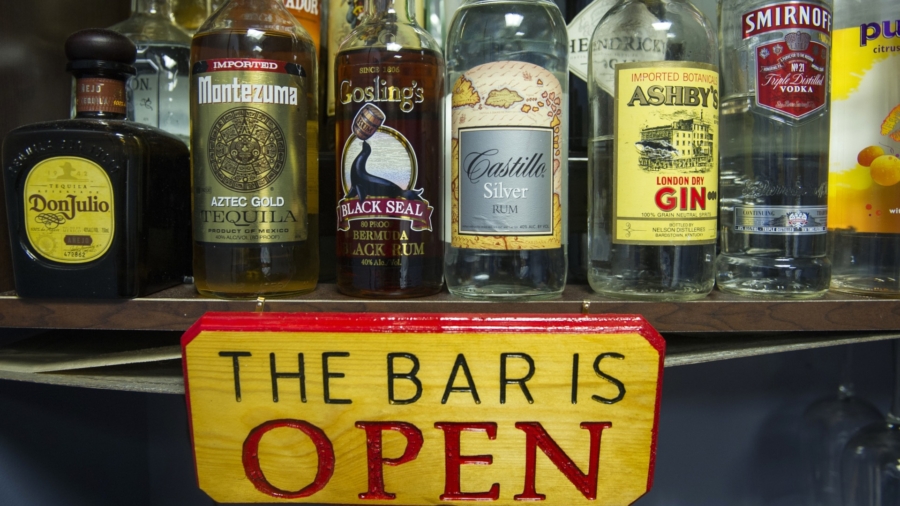The number of Americans who died of alcohol-associated causes throughout the first 12 months of the COVID-19 pandemic has increased dramatically, according to a recent study.
The study, published in the Journal of the American Medical Association (JAMA) on March 18, revealed that 99,017 U.S. citizens died of alcohol-related causes in 2020—a 25.5 percent increase from the 78,927 deaths documented in 2019.
Researchers noted that the most significant increase in deaths was among the 35 to 44 age group, amounting to nearly 40 percent of all deaths. The second age group that suffered most from lethal alcohol use were Americans aged 25 to 34, with males and females having a similar mortality rate.
The study analyzed data from the same year when there was a reported 54 percent increase in national sales of alcohol in March 2020 compared with the same period in 2019.
Online alcohol sales for the week ending March 21, 2020, were also 262 percent higher in 2020 than in 2019.
Anxiety and pressure induced by the CCP (Chinese Communist Party) virus pandemic contributed to the increase in drinking to cope with stress, researchers said. Other key factors include more emergency department visits for alcohol withdrawal and delays in treatment.
“The assumption is that there were lots of people who were in recovery and had reduced access to support that spring and relapsed,” Aaron White, one of the authors of the study, told The New York Times.
“Stress is the primary factor in relapse, and there is no question there was a big increase in self-reported stress, and big increases in anxiety and depression, and planet-wide uncertainty about what was coming next,” he said. “That’s a lot of pressure on people who are trying to maintain recovery.”
Most alcohol-related deaths were in people with an underlying liver condition or disease, followed by overdoses from alcohol, along with opioid overdose deaths that involved alcohol as a contributing cause.
Meanwhile, alcohol-related deaths among adults younger than 65 outnumbered CCP virus deaths in 2020. Approximately 74,408 Americans ages 16 to 64 died of alcohol-related causes, compared to 74,075 individuals under 65 who died of COVID-19, according to The New York Times.
Increasing Trend
The U.S. Centers for Disease Control and Prevention (CDC) National Centers for Health Statistics (NCHS) said in an October 2020 report that there was a 43 percent increase in alcohol-related deaths from 2006 to 2018.
“Rates overall and rates for males and females increased over the period. While rates were higher for males than females for each year, the rate of change was greater for females, resulting in a narrowing of the differences between male and female rates,” the report read.
For men aged 25 and older, the rate decreased slightly from 2000 to 2005 (17.5 to 16.9 per 100,000 people). Then from 2006 to 2018, the rate increased from 16.9 to 22.6 per 100,000 people—a 34 percent increase.
The rates for women at and over the age of 25, however, saw an increase from 4.9 per 100,000 people in 2000 all the way to 8.6 per 100,000 people in 2018. That’s a 76 percent increase from 2000 to 2018.
White noted in the latest report that researchers are concerned whether the numbers next year will decrease or could become even worse.
If you or someone you know is struggling with addiction, call the Al-Anon and Alateen hotline line on 800-356-9996 for support from a counselor. In case of an emergency, call 911.
Paula Liu contributed to this report.


